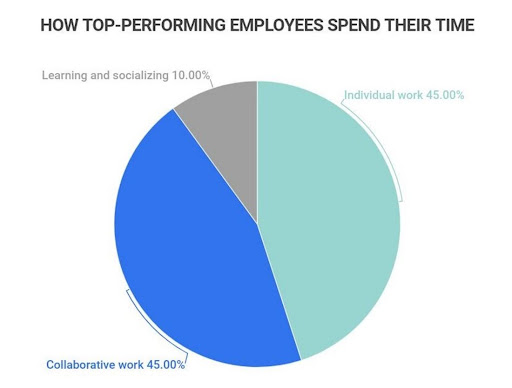Today’s marketplace is in a constant state of evolution. From consumer expectations and demands to technological advancements and industry trends, companies must find ways to future-proof their business in 2022.
While it’s impossible for any business to know what the future holds, companies can create sustainable plans to adjust to changing times.
In 2021, the global pandemic and poor management decisions led to the bankruptcy of 136 retailers!
By instilling policies and procedures that ensure your business remains relevant and fostering an environment that promotes innovation, you can count on a bright and successful future for your company.
Keep reading to learn how to future-proof your business in 2022 for continued growth, increased sales, and further success.
Key Takeaways
- Future-proofing your business means planning for upcoming events and creating methods to mitigate the impact of those changes.
- There are many reasons business leaders fail to future-proof, from being comfortable with the present to failing to act on insightful data.
- While there are numerous tactics to help you prepare for the future, there are five main ways to future-proof your business.
What Does it Mean to Future-Proof Your Business?
To future-proof your business is to anticipate what’s to come and develop methods to reduce the impact of change due to future events.
Change is inevitable. You either progress with evolving trends and demands, or you become irrelevant. This can mean you fail and file for bankruptcy, or you flail and cease to thrive, slowly devolving until you can no longer sustain yourself in the current economy and marketplace.
By predicting future events, reading technology trends, and planning for possible scenarios, you can position your company on a track for success. You can set yourself apart from the competition and surpass those who fail to plan now for the future.
The following video explains in more detail the importance of future-proofing your business:
Video Source: Demakis Technology on YouTube
The reason many companies don’t future-proof their business is because they are:
- Scared: Many fear the unknown and don’t want to plan for a future they can’t predict.
- Comfortable: When things are going well, many take the mindset of “don’t fix what isn’t broken.”
- Exhausted: Weighed down by everyday duties, executives are too fatigued to implement new ideas and think ahead to the future.
- Unresponsive: Regardless of helpful data and metrics that can shape a future plan, business leaders don’t take the time to act on the insights they gather.
- Not paying attention: Competitors, customers, and the marketplace can give clues about what changes and trends are taking hold. You’ll find yourself behind the curve if you’re not paying attention.
To plan for the future, you certainly must be forward-thinking, alert to what’s happening in your industry and the marketplace, and ready to think outside the box. Future-proof your business and plan for success.
5 Ways to Future-Proof Your Business
To ensure your company stays ahead of the competition and maintains sustainability for ongoing success, you must future-proof your business. The average consumer these days sees 7,000 marketing messages every single day. And yet, 93% still go online to research before making a purchase.
A business that understands these business and marketing trends can set itself up for a future filled with growth.
Here are five ways to prepare for the future.
1. Adopt a Growth Mindset
A fixed mindset is limiting, but a growth mindset enables you to accept challenges and adapt to change. Business leaders must adopt a growth mindset. After all, change is inevitable, and if you’re willing to accept this and make plans to adapt for growth, you’re more likely to succeed long-term.
A growth mindset means you aren’t content to remain static but challenge yourself to evolve into something even better. By leading in this way, you’ll create a company culture that propels everyone toward evolution. Certainly, such a mentality will help you future-proof your business for continued success.

There are proven revenue growth strategies to achieve success. Following them with the right mindset can help ensure future success.
2. Listen to Customer Feedback
Customer feedback can be instrumental in shaping the future of your company. Essentially, your ultimate goal is to provide solutions for your audience, so customer reviews can uncover how needs are changing. Chat threads and forums are a place for people to give candid feedback about your:
- Products
- Company
- Competitors
- The marketplace in general
All of this provides clues about what changes you need to make to ensure you’re keeping up with (if not ahead of) trends and demands.
These days, even advanced technology like predictive forecasting can be used to see where customer trends are headed so you can stay ahead of the pack.
3. Encourage Employee Input
Nobody knows your business, products, and audience like your employees. These frontline workers are highly informed and can provide invaluable input about how to improve your processes and offerings.
Therefore, encourage their engagement, and make sure they know that an idea doesn’t have to be fully formed before sharing it with the group. Collaboration and brainstorming can lead to bigger and better ideas that can be the key to propelling your business to long-term greatness.

3. Look Ahead
It isn’t enough to simply keep up with what others in your industry are doing now. You have to look ahead and make predictions about what’s to come and prepare for those possibilities to remain sustainable.
Think about potential scenarios and develop a strategy for how to prepare for those situations. In fact, while you may never experience that particular scenario, this forward-thinking strategy helps you develop agility and flexibility in the face of change. This can help you adapt more easily to the changes that do take place in your business and help set you up for success.
4. Expand Your Offering
If your business relies heavily on one product or service, consider expanding your offering. What would you do if suddenly materials for that product were unavailable? Or what if new technology made your single product obsolete?
Don’t put all your eggs in one basket. Instead, think about other ways your company could generate revenue. For instance, a diversified product portfolio gives you more stability, more possibilities for income, and another solution for your customers.
5. Create a Plan and Act
Take the time to consider possible risks and think about ways to overcome or circumvent them. Create a business communication strategy that outlines ways to future-proof your business and set goals to gauge progress.
Communicate this plan to your team, and revisit your goals to maintain accountability. Also, seek outside perspectives to confirm your plan is moving forward as it should. Because the only way to ensure your future-proof plan moves forward is to get team buy-in, put systems in place to help you reach your goals, and execute the strategy.
Follow these 5 steps to future-proof your business in 2022 and thrive in the years ahead.













